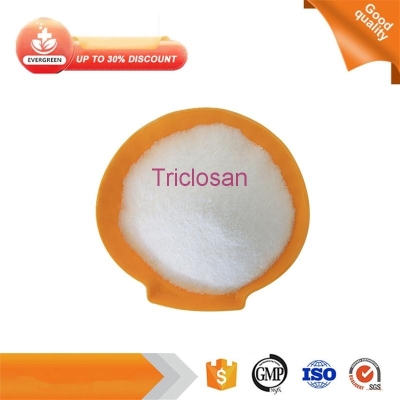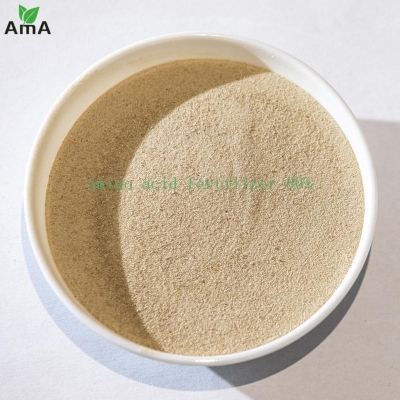-
Categories
-
Pharmaceutical Intermediates
-
Active Pharmaceutical Ingredients
-
Food Additives
- Industrial Coatings
- Agrochemicals
- Dyes and Pigments
- Surfactant
- Flavors and Fragrances
- Chemical Reagents
- Catalyst and Auxiliary
- Natural Products
- Inorganic Chemistry
-
Organic Chemistry
-
Biochemical Engineering
- Analytical Chemistry
- Cosmetic Ingredient
-
Pharmaceutical Intermediates
Promotion
ECHEMI Mall
Wholesale
Weekly Price
Exhibition
News
-
Trade Service
British pharmaceutical giant AstraZeneca announced that its rare disease drug eculizumab (Sulirui) opened its first order in Hangzhou on November 11, 2022, and was officially launched
in China.
The drug was conditionally approved by the State Food and Drug Administration of China on September 4, 2018 for the treatment of paroxysmal nocturnal hemoglobinuria (PNH) and atypical hemolytic uremic syndrome (aHUS)
in adults and children.
In August 2022, the State Food and Drug Administration approved the application for the change of origin of the drug through the new origin of the original solution, marking a key step
towards filling the gap in this field in China, as the first rare disease drug of AstraZeneca in the Chinese market.
Huge acquisition of Alexion to expand the field of rare diseases
Huge acquisition of Alexion to expand the field of rare diseasesDeveloped by Alexion of Switzerland, Suliri is the world's first C5 complement inhibitory monoclonal antibody, which can inhibit the C5 protein
in the terminal complement cascade.
First approved for marketing in the United States in 2007, Suliri is one of the world's most expensive drugs and was once known as the world's most expensive monoclonal antibody drug
.
It is understood that the treatment cost of the drug in the United States is about 500,000 US dollars / year, and the price in Canada is as high as 700,000 US dollars / year / person
.
In 2021, Schullieri's global sales reached 1.
87 billion US dollars
.
According to GBI
SOURCE Global Drug Database, another indication of Sullirui, for the treatment of refractory systemic myasthenia gravis (gMG) adult patients with positive acetylcholine receptor (AchR) antibodies, has been accepted
by the NMPA in July 2022.
In addition, the drug has lupus nephritis (LN), immunoglobulin A nephropathy (IgAN) and light chain (AL) amyloidosis and other indications have been approved for clinical trials
.
GBI previously reported that in December 2020, AstraZeneca announced the acquisition of rare disease giant Alexion Pharmaceuticals for a huge investment of US$39 billion, obtaining blockbuster drugs such as Sulliri and UItomiris, which brought AstraZeneca a rare disease product line and related talents
.
On July 21, 2021, the acquisition was officially completed, and in September of the same year, AstraZeneca's China Rare Disease Business Unit was officially established
.
According to the company's financial report for the third quarter of 2022, the rare disease business unit increased by 11% during the reporting period, of which the product sales obtained through the acquisition of Alexion exceeded $1.
7 billion (click to read).
The national top-level design promotes access to rare disease drugs
The national top-level design promotes access to rare disease drugsIn recent years, the state has accelerated the accessibility of rare disease drugs from the top-level design, and actively explored an appropriate rare disease guarantee system
.
In 2015
In 2015The State Council issued the Opinions on Reforming the Review and Approval System for Drugs and Medical Devices, proposing to implement a special review and approval system for innovative drugs such as rare disease drugs;
May 2018
May 2018The National Health Commission and other five departments jointly issued the First Rare Disease Catalog, involving a total of 121 diseases;
November 2018
November 2018The Center for Drug Review (CDE) of the State Food and Drug Administration released the first batch of "List of Urgently Needed Overseas New Drugs", and 48 urgently needed overseas new drugs were selected by the State Food and Drug Administration and the National Health Commission, most of which were rare diseases and clinically urgently needed special drugs, and CDE established a special channel for them to accelerate the review;
February 2019
February 2019The National Health Commission formulated and issued the Guidelines for the Diagnosis and Treatment of Rare Diseases (2019 Edition), which clarifies the diagnosis and treatment guidelines
for each of the 121 diseases included in the list of rare diseases.
Looking back at the previous medical insurance negotiations, the proportion and types of rare disease drugs are also expanding
.
According to a special report previously released by GBI, a total of 7 rare disease drugs were successfully negotiated in 2021, setting a new high
for the number of new rare disease drugs in previous medical insurance negotiations.
Among them, Biogen has two drugs successfully negotiated, namely the SMA treatment drug nocinaxen sodium, which has attracted widespread attention, which has dropped from a unit price of 550,000 yuan / needle to about 33,000 yuan / needle, a decrease of 93.
97%; and a drug for the treatment of multiple sclerosis (famperine),
which was launched in China in May 2021.
According to the "Chinese SMA Patient Quality of Life Study", after medical insurance covered nocinaxen sodium, the number of patients who started the drug increased
significantly.
As the first year of treatment ends, the burden of disease is expected to continue to decrease (click to read).
Take advantage of GBI
SOURCE's latest [Negotiated Drug Price Trend Analysis Tool] launched by the SOURCE Global Drug Database can also visually view the medical insurance negotiation price reduction of the remaining 5 rare disease drugs:
SOURCE: GBI SOURCE GLOBAL MEDICINES DATABASE
GBI SOURCEIt can be seen that the price of 3 of them has been significantly reduced, namely Takeda's Fabry disease drug Repuja (Aganase α) reduced the price by 74.
55%, Hereditary angioedema (HAE) treatment drug Fezeyou (Etiband) reduced the price by 55.
18%, and Taibang Bio Human Coagulation Factor IX.
reduced the price by 70.
2
%.
Medical insurance negotiations in 2022 are imminent, one of the highlights of this round of catalog adjustment work is tilted towards rare disease drugs, and there is no restriction on "approval after January 1, 2017" for the declaration of rare disease drugs.
Many multinational pharmaceutical companies are actively deploying
Many multinational pharmaceutical companies are actively deployingAccording to the "China Rare Disease Industry Watch 2021", there are about 1,400 known rare diseases in China, and about 20 million rare disease patients, "difficult to diagnose, no medicine, and unaffordable" are the three major pain points
of rare disease patients 。 In recent years, thanks to policy dividends, rare disease drugs have ushered in historic opportunities, and many multinational pharmaceutical companies have been deployed, and various acquisitions have occurred frequently - in 2018, Takeda acquired rare disease giant Shire's for $65 billion; In 2019, Roche acquired gene therapy company Spark for $4.
8 billion
Therapeutics; In 2021, Merck acquired Acceleron
, a biopharmaceutical company focused on developing and commercializing drugs for the treatment of serious and rare diseases, for $11.
5 billion.
At the recently concluded fifth CIIE, many multinational giants also appeared with their innovative rare disease drugs, or carried out thematic activities and project cooperation
related to rare diseases 。 For example, Pfizer cooperated with China Rare Disease Alliance, China Social Assistance Foundation, and Ping An Health Group to launch a precision assistance project for hemophilia patients; Takeda joined hands with the China Medical Insurance Chamber of Commerce to promote the supply of innovative drugs for rare diseases; Boehringer Ingelheim announced that it has joined hands with experts in the field of dermatology and the Ginkgo Rare Skin Disease (GPP) Care Center to compile the first "Generalized Pustular Psoriasis Patient Education Manual" for rare skin diseases generalized pustular psoriasis; AstraZeneca presented its rare disease business layout in China with the theme of "Gathering for Rare Times, Going to the Future Together", in addition to announcing the listing of Shulirui in China, it also reached a strategic cooperation with CanSino to explore development opportunities
in the field of rare disease diagnosis and treatment.
In addition, AstraZeneca has also made substantial progress
with the Qingdao government in the construction of Qingdao regional headquarters and innovation ecosystem with the theme of rare diseases.







